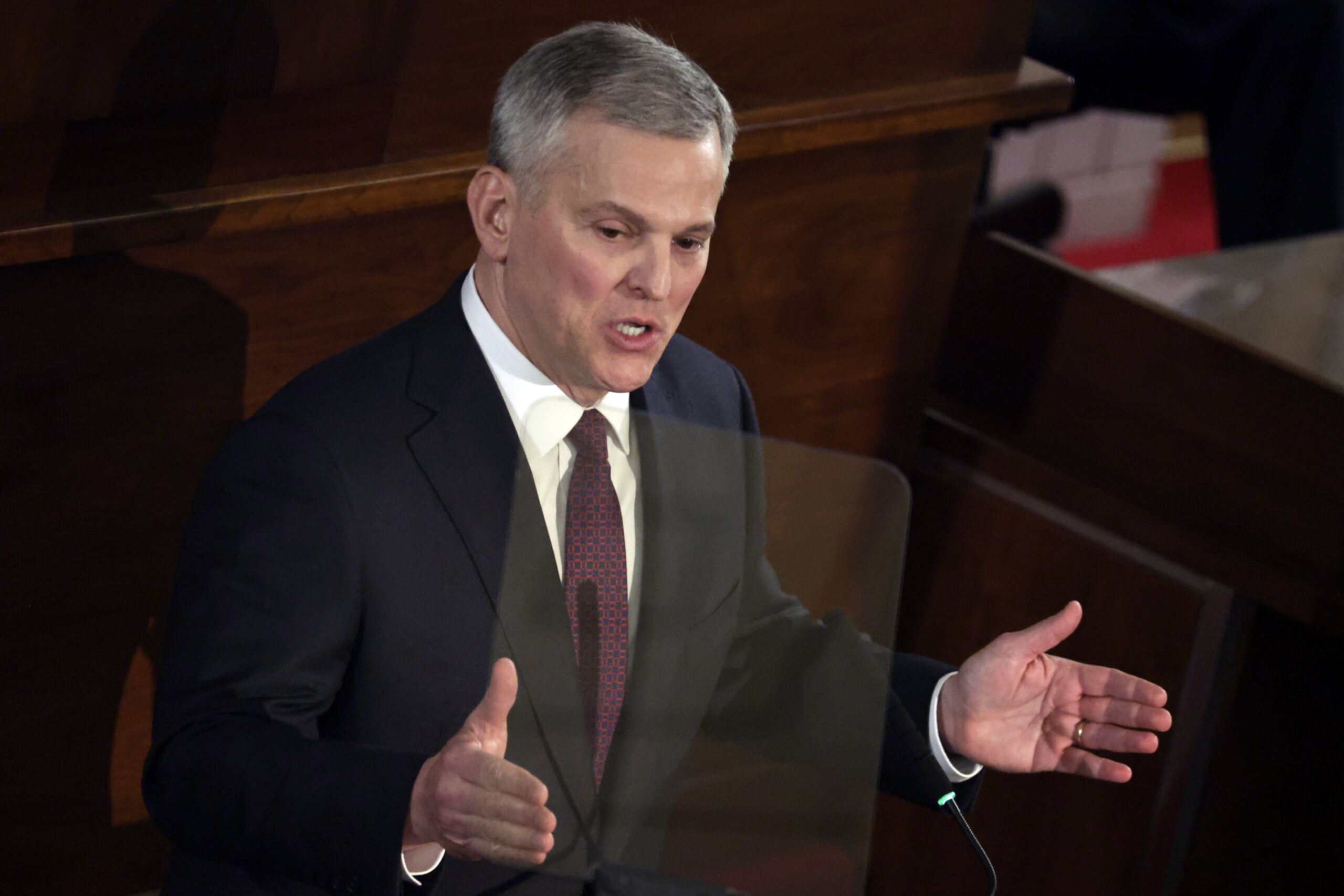Google, Apple and Facebook sent a letter to North Carolina legislators urging them not to change the state’s renewable energy laws. State representatives are considering a bill that green energy advocates say would negatively impact the renewable energy sector.
The tech giants’ letter urges legislators not to adopt House Bill 332. The proposed legislation would make significant changes to the state’s Renewable Energy Portfolio Standard (REPS).
The REPS requires utility companies to buy a certain percentage of their energy from renewable sources, such as solar or wind power. The REPS also requires utilities to increase the percentage of clean energy they buy over time. Allison Eckley of the North Carolina Sustainable Energy Association (NCSEA) says the REPS has been key for the growth of green energy companies in North Carolina, and to keeping rates down for consumers.
“We’ve already seen the downward pressure on electric bills that these policies have had,” Eckley said.
House Bill 332 wouldn’t get rid of the REPS, but it would freeze the REPS requirement at its current 6 percent. Google, Apple and Facebook expressed concern in last week’s letter to legislators that limiting the REPS would hold back the growth of North Carolina’s renewable energy sector. The three companies employ 200 people in North Carolina and have invested $2.7 billion in the state. More than half of their investments are in the renewable energy sector, according to a statement from NCSEA.
“They’ve been following the policy developments here because they consider clean energy as a supplier to that power as a priority. And that’s part of the reason, as they say in the letter, that they selected North Carolina instead of other states in the Southeast that also have cheaper electricity,” Eckley said.
House Bill 332 is co-sponsored by Rep. Mike Hager, a former Duke Energy employee. He and other proponents of House Bill 332 say the REPS unfairly support the renewable energy industry over other sectors. Becki Gray, from the Raleigh-based conservative think-tank, the John Locke Foundation, agrees.
“This mandate, these special favors that are granted to the solar industry at the expense of taxpayers is not good policy. It doesn’t lead to good economic growth,” Gray said.
Gray argues the opposite of Google, Facebook and Apple when it comes to the REPS’ downward pressure on rates.
“The studies that we’ve seen show that that is not true, that the costs increase with the requirement that a certain percentage of your energy has to come from more expensive sources,” she said.
House Bill 332 is being debated in the Senate. For now, the one thing both sides can agree on is the need for more research on the REPS’ economic impact.
Related Stories
‹

North Carolina Gov. Stein Vetoes Bill Repealing Interim Greenhouse Gas Reduction MandateNorth Carolina Gov. Josh Stein vetoed legislation Wednesday that in part would repeal an interim greenhouse gas reduction mandate set for Duke Energy's power generation.

‘Godfather of AI’ Leaves Google, Warns of Tech’s DangersWritten by MATT O’BRIEN and WYATTE GRANTHAM-PHILIPS Sounding alarms about artificial intelligence has become a popular pastime in the ChatGPT era, taken up by high-profile figures as varied as industrialist Elon Musk, leftist intellectual Noam Chomsky and the 99-year-old retired statesman Henry Kissinger. But it’s the concerns of insiders in the AI research community that […]
![]()
Lawmakers Grill 4 Big Tech CEOs but Don’t Land Many BlowsCongressional lawmakers finally got a chance to grill the CEOs of Big Tech over their dominance and allegations of monopolistic practices that stifle competition. But it’s unclear how much they advanced their goal of bringing some of the world’s largest companies to heel. Invective flew Wednesday as legislators questioned Facebook’s Mark Zuckerberg, Amazon’s Jeff Bezos, Google’s […]
![]()
Lawmakers Asking 4 Big Tech Companies for Documents in ProbeHouse lawmakers investigating the market dominance of Big Tech are asking Google, Facebook, Amazon and Apple for a broad range of documents including internal communications. Letters went out to the four companies on Friday from the leaders of the House Judiciary Committee and its subcommittee on antitrust, which has been conducting a sweeping antitrust investigation […]
![]()
Congress Grills Big Tech Over Competition, Money and PowerBig Tech faced tough questions Tuesday as federal lawmakers focused on issues of potentially anticompetitive behavior by technology giants and expressed bipartisan skepticism over Facebook’s plan for a new digital currency. Companies such as Apple, Google, Facebook and Amazon have long enjoyed nearly unbridled growth and a mythic stature as once-scrappy startups — born in […]

Duke Energy Files Motion to Dismiss Carrboro's Climate Change 'Deception' LawsuitDuke Energy filed a motion to dismiss a Town of Carrboro lawsuit against it in Orange County, the first legal response by the energy giant.

UNC Making Progress on Reducing Emissions, But Coal Replacement Still Far Off at Steam PlantDuring a recent panel updating where UNC stands in those efforts, sustainability officials pointed to improvements in overall and energy-specific emissions rates – but detailed the challenges of moving entirely away from using coal in the short-term.

Europe Shifts Focus To Avoiding Energy Shortage Next YearWritten by COURTNEY BONNELL The heads of the International Energy Agency and European Union’s executive branch said Monday that the 27-nation bloc is expected to weather an energy crisis this winter but needs to speed renewables to the market and take other steps to avoid a potential shortage next year in natural gas needed for heating, electricity […]

Coalition Criticizes Duke Energy Carbon Plan in N. CarolinaWritten by GARY D. ROBERTSON Environmental and renewable energy groups have challenged the proposal by Duke Energy Corp. subsidiaries on how to reduce greenhouse gases in North Carolina in the next decade, saying it relies too much on natural gas and unproven technologies to succeed. The groups, in filing a formal response to the proposed electricity-production shifts […]
![]()
In Surprise Move, Facebook Blocks News Access in AustraliaIn a surprise retaliatory move Thursday, Facebook blocked Australians from sharing news stories, escalating a fight with the government over whether powerful tech companies should have to pay news organizations for content. Australia’s government condemned the step, which also blocked some government communications, including messages about emergency services, and some commercial pages. The digital platforms […]
›







